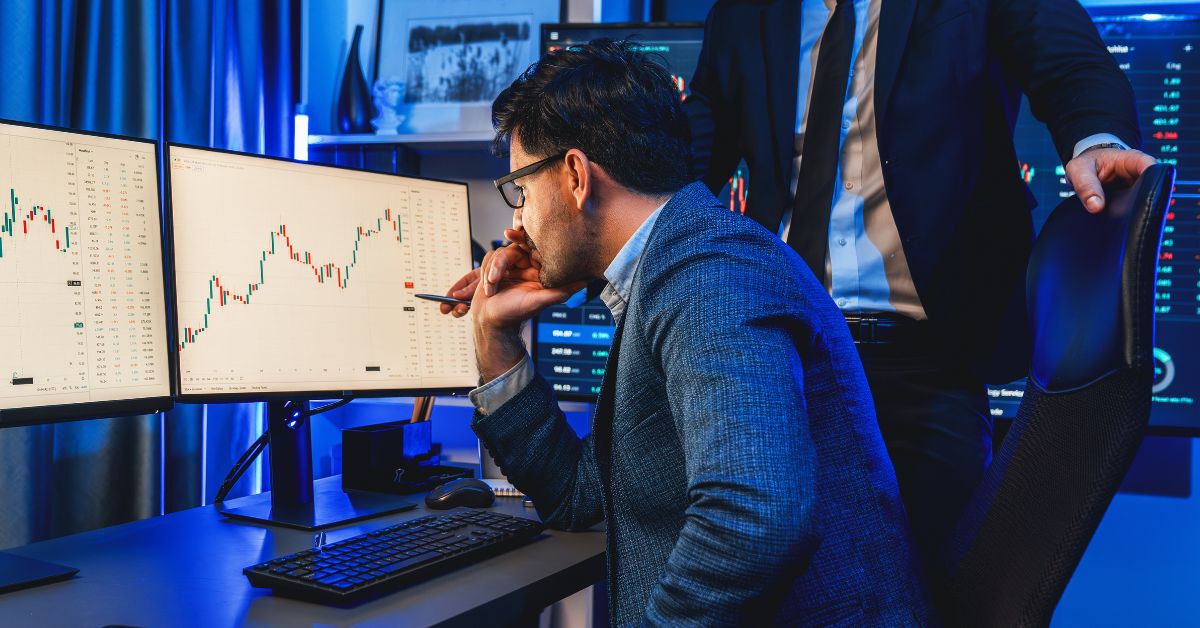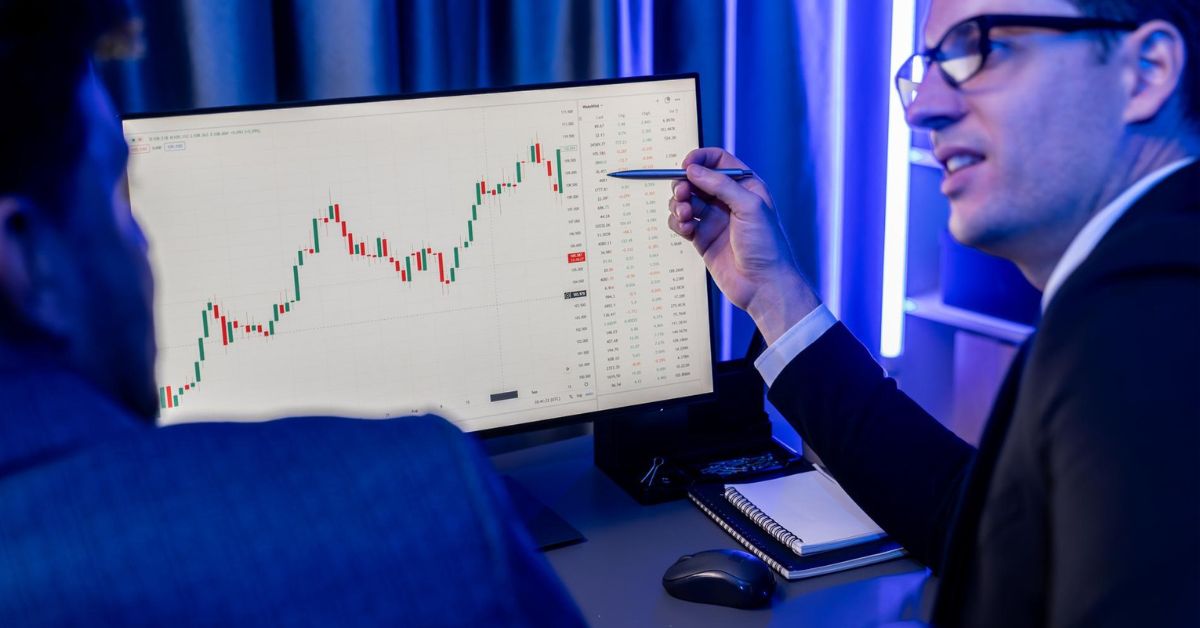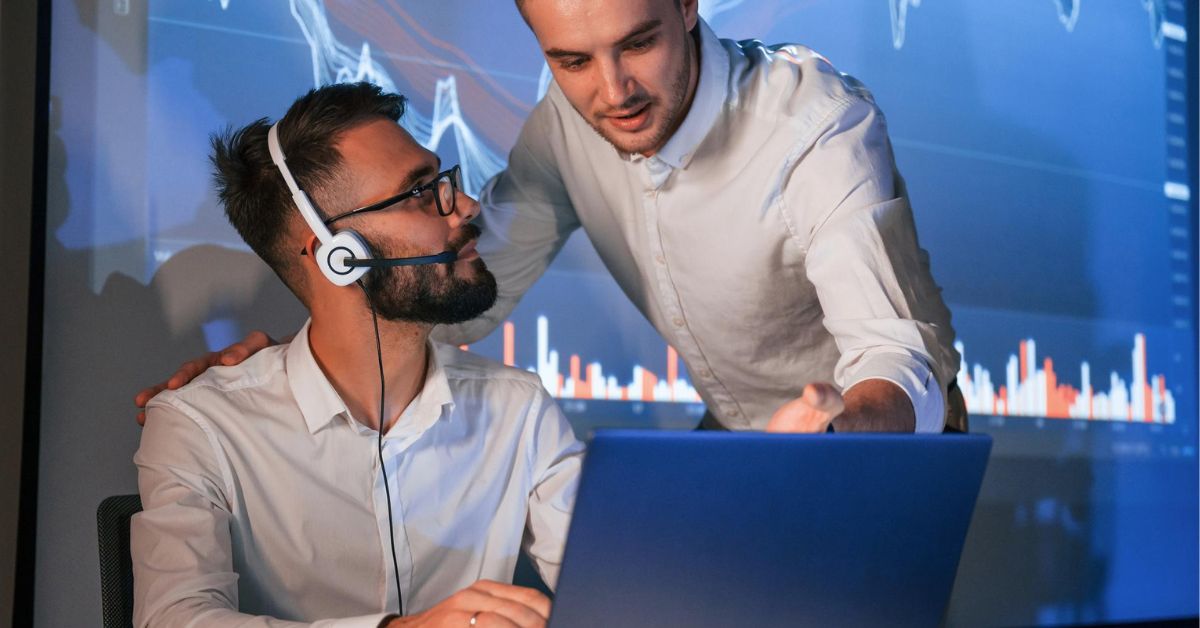Cryptocurrency trading requires a high level of psychological resilience. The crypto market requires more than technical skills—it requires mental fortitude. Therefore, it’s important to understand how trading psychology influences in crypto trading.
To enhance your trading experience, consider using a reliable platform like Prime XBT. The Prime XBT platform offers robust tools and resources to help you manage your psychological pressures while trading. So, join PrimeXBT today! Use promo code PRIMEOTT to receive a +7% bonus on your deposit.
The key to mastering trading psychology is recognizing and addressing common mental challenges. Integrating psychological strategies can help you make better decisions and win at trading. Let’s discover how psychology can help you become a better crypto trader.
What is Crypto Trading Psychology?

Trading psychology refers to the mental and emotional state affecting trading decisions. It’s crucial in all financial markets, especially in crypto trading. Emotions like fear, greed, and overconfidence can influence your choices. These psychological factors can either lead to success or cause significant losses.
Crypto trading is uniquely challenging due to its volatility. Rapid price swings can heighten emotional responses and impact decision-making. The ability to recognize how emotions affect trading is crucial to developing a successful strategy.
Trading psychology involves recognizing your emotional triggers. Awareness of these triggers can help you manage them more effectively. By improving your psychological approach, you can enhance your overall trading performance.
Common Psychological Challenges in Crypto Trading
Crypto trading is fraught with unique psychological challenges due to its inherent volatility and rapid market changes. Traders often grapple with emotions such as fear and greed, which can impact their decision-making. It’s essential to understand these challenges so you can develop strategies.
Fear and Greed
Fear of loss can lead to hasty and irrational decisions. Traders might exit positions prematurely due to fear. Conversely, greed can drive them to take on excessive risks. This often results in entering trades too late or over-leveraging positions.
FOMO (Fear of Missing Out)
FOMO causes traders to rush into investments during market upswings. This urgency can lead to buying assets at inflated prices. Traders influenced by FOMO may overlook their trading plans and risk management strategies. Recognizing this impulse helps in making more calculated decisions.
Overconfidence
Overconfidence occurs when traders overestimate their knowledge or abilities. This can result in taking on more risk than they should, excessive trading, and ignoring market signals. A realistic assessment of one’s skills and market conditions is essential.
Stress and Anxiety
Crypto trading’s inherent volatility can cause high levels of stress. Stress and anxiety can cloud judgment and affect trading decisions. Traders under stress might make impulsive or emotional trades. Effective stress management techniques are crucial for maintaining a clear and rational mindset.
Strategies for Managing Trading Psychology in Crypto Trading

Managing your trading psychology is crucial for navigating the volatile crypto market. Effective strategies can help you control emotions and make rational decisions. Implementing these strategies can improve your trading performance and help you maintain discipline.
Develop a Trading Plan
A well-crafted trading plan serves as your trading roadmap. It should outline clear objectives, including profit targets and risk limits. Define specific criteria for entering and exiting trades, such as technical indicators or market conditions. Stick to the plan to avoid emotional decisions.
Review and update the plan regularly based on market trends and personal performance. This structured approach helps maintain consistency and avoid impulsive trades. Adhering to your plan increases your chances of long-term trading success.
Set Realistic Goals
Setting realistic trading goals is essential for staying motivated and focused. Based on your trading experience and market conditions, define achievable targets. Goals can include a specific percentage gain or a trading volume target. Ensure these goals are measurable and time-bound.
Regularly assess your progress towards these goals to stay on track. Adjust goals as needed based on performance and changing market dynamics. Realistic goals prevent frustration and help maintain a balanced perspective on your trading journey.
Practice Self-Discipline
Self-discipline is vital for successful trading and involves sticking to your established plan. Avoid making trades based on emotions or fleeting market trends. Establish a daily routine that reinforces your trading strategy and decision-making process.
Maintain focus on your trading rules and resist the urge to deviate due to market hype. Regularly reviewing your trades and outcomes can also help reinforce disciplined behavior. Practicing self-discipline ensures that your trades align with your plan and improves overall performance.
Implement Risk Management
Implementing effective risk management strategies is crucial to safeguard your investments. Set stop-loss orders to limit potential losses on each trade automatically. Determine appropriate position sizes based on your account size and risk tolerance. Diversify your trades to spread risk across different assets or strategies.
Assess and adjust your risk management approach regularly based on market volatility. By managing risk effectively, you can reduce emotional stress and maintain more stable trading performance. This approach helps preserve capital and achieve long-term success.
Regular Reflection and Adjustment
Regular reflection and adjustment are vital in improving your trading performance. Review your trades and emotional responses to understand what worked and what didn’t. Analyze both successful and unsuccessful trades for patterns or mistakes.
Adjust your trading strategies based on these insights and evolving market conditions. Maintaining a trading journal can assist in tracking your performance and psychological state. Over time, continuous reflection helps you refine your approach and enhance your trading skills.
Tools and Techniques for Psychological Support

Practical tools and techniques can significantly aid in managing trading psychology. These methods make maintaining emotional balance and improving decision-making easier. Here are some key strategies to support your mental health while trading.
Journaling
Keeping a trading journal is essential for understanding your trading decisions and emotions. Document each trade, including the rationale behind your choices and your emotional state at the time. Regularly review your journal to identify patterns and recurring mistakes.
Reflection allows you to understand what strategies work and what do not, allowing you to adjust them accordingly. A well-maintained journal enhances self-awareness and supports better decision-making. It’s a valuable tool for improving your trading psychology and overall performance over time.
Mindfulness and Stress-Relief Techniques
Mindfulness practices, such as meditation and deep breathing, can significantly reduce stress and improve focus. Incorporate mindfulness exercises into your daily routine to stay calm under pressure. These techniques help you manage anxiety and maintain a clear, rational mindset during market volatility.
Regular practice enhances your ability to handle stressful situations without letting emotions dictate your trading decisions. By integrating mindfulness and stress-relief methods into your routine, you can improve both your psychological resilience and trading performance.
Seeking Professional Help
When psychological challenges in trading become overwhelming, seeking professional help can be beneficial. Consider consulting a trading coach or psychologist who specializes in financial behavior. Through our trading psychology coaching, you can find personalized support at the On Tilt Trading Store.
With our coaching sessions, we’ll help you address your specific psychological issues and improve your trading mindset. You can manage stress, fear, and other emotions related to trading, enabling you to trade successfully.
FAQs
What is the psychology of the crypto market cycle?
Psychologically, the crypto market cycle revolves around the collective emotional and behavioral responses of traders. The cycle typically includes four main phases:
- Optimism and Euphoria: Early signs of price increases lead to optimism and excitement. Traders often become overly enthusiastic, driving prices higher.
- Greed and Overconfidence: As prices continue to rise, greed and overconfidence grow. Traders might take excessive risks, expecting continual gains.
- Fear and Capitulation: A market downturn triggers fear and panic selling. Traders may experience significant losses, leading to capitulation and selling at a loss.
- Despair and Disbelief: At the cycle’s low, despair sets in. Traders are skeptical of recovery, but this phase eventually gives way to a new cycle of optimism.
Traders can make more rational decisions if they are aware of these psychological phases.
Conclusion
The key to consistent success in crypto trading is understanding trading psychology. Managing emotions like fear, greed, and hope can help traders make more rational decisions. The key to successful trading is developing a positive mindset, practising mindfulness, and following a plan. The more you review your performance and learn from your mistakes, the more effective your trading will be.
If you have trouble making decisions based on emotion, the Vestinda trading app can be a great help. Its automated crypto trading strategies help you avoid pitfalls like panic selling, FOMO, and overtrading. Embrace these strategies to enhance your trading discipline and achieve better results.



